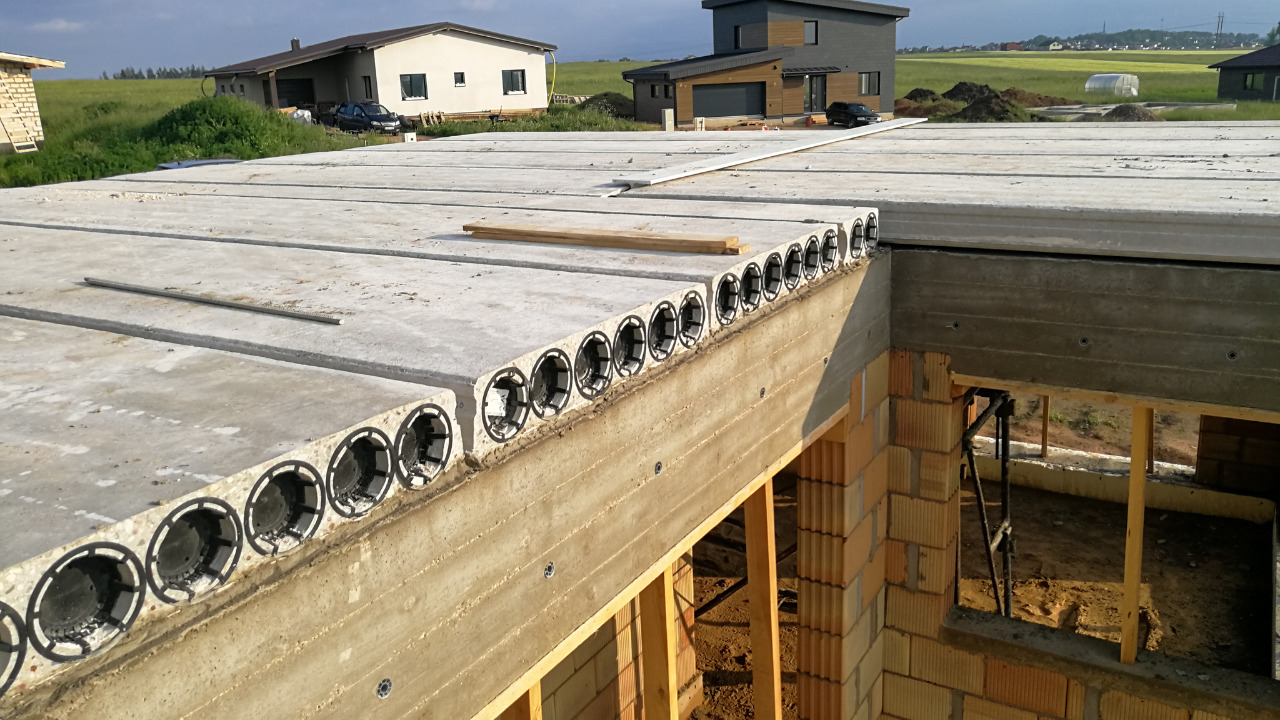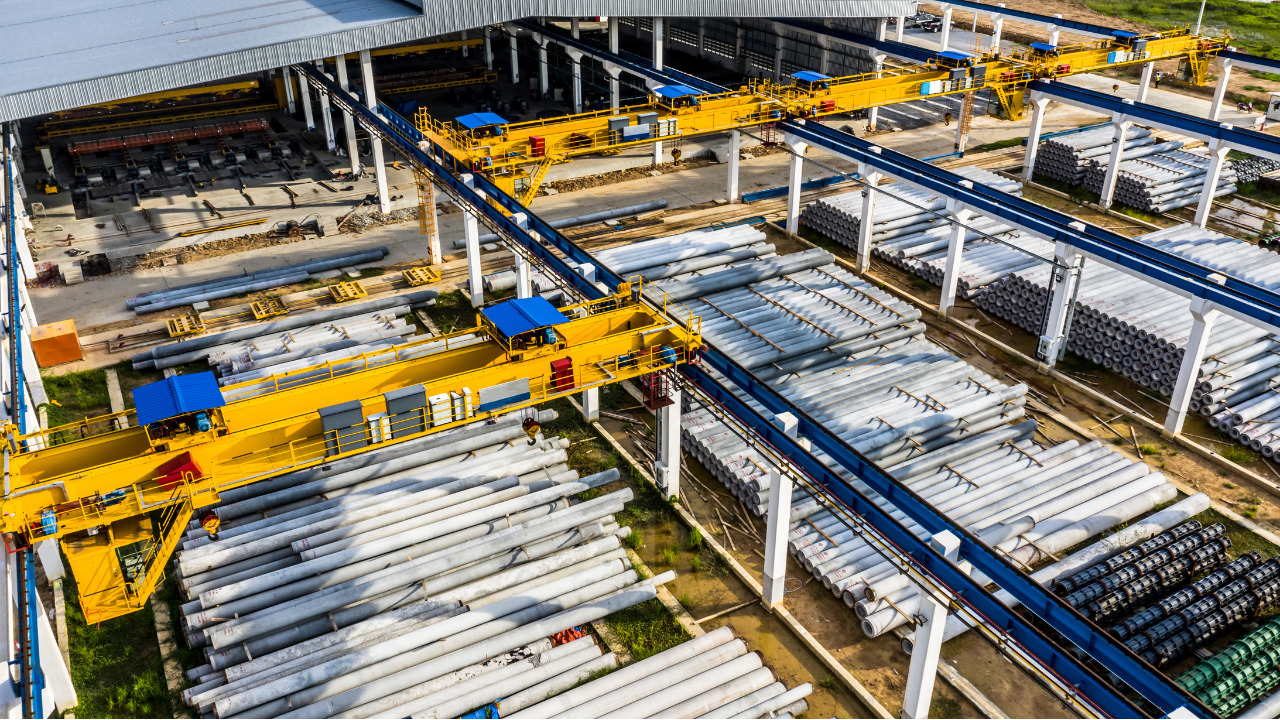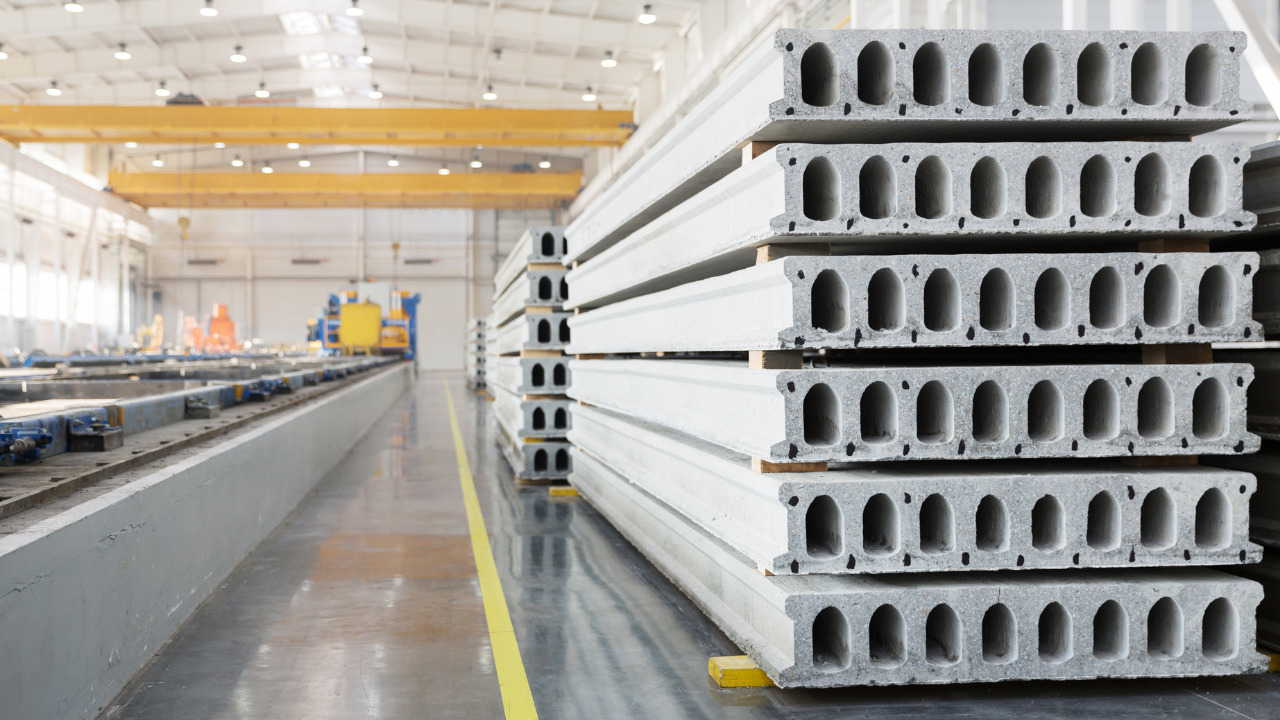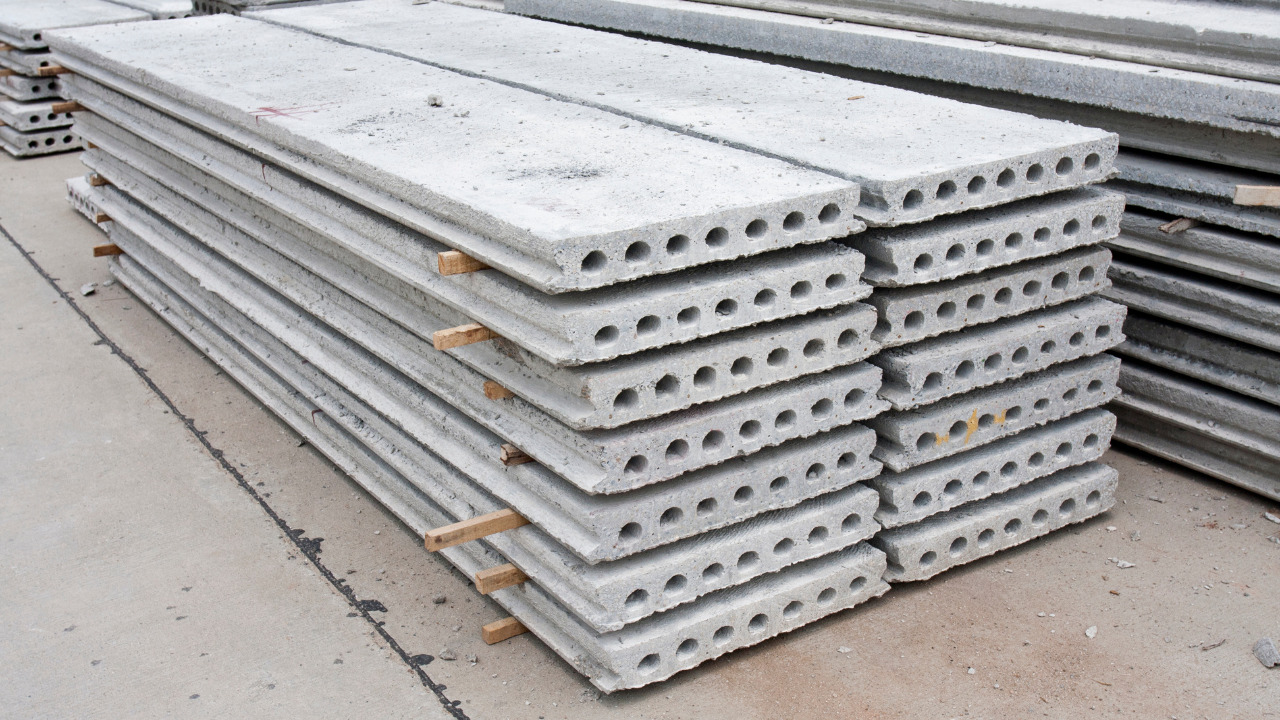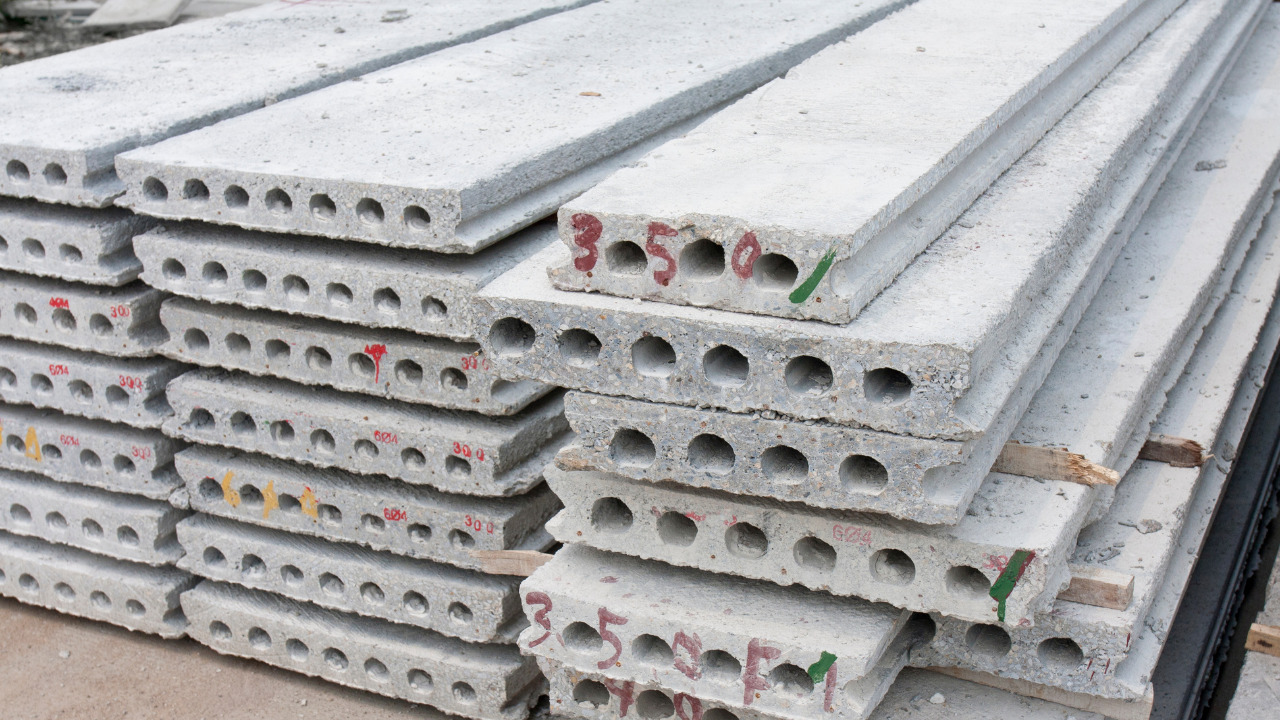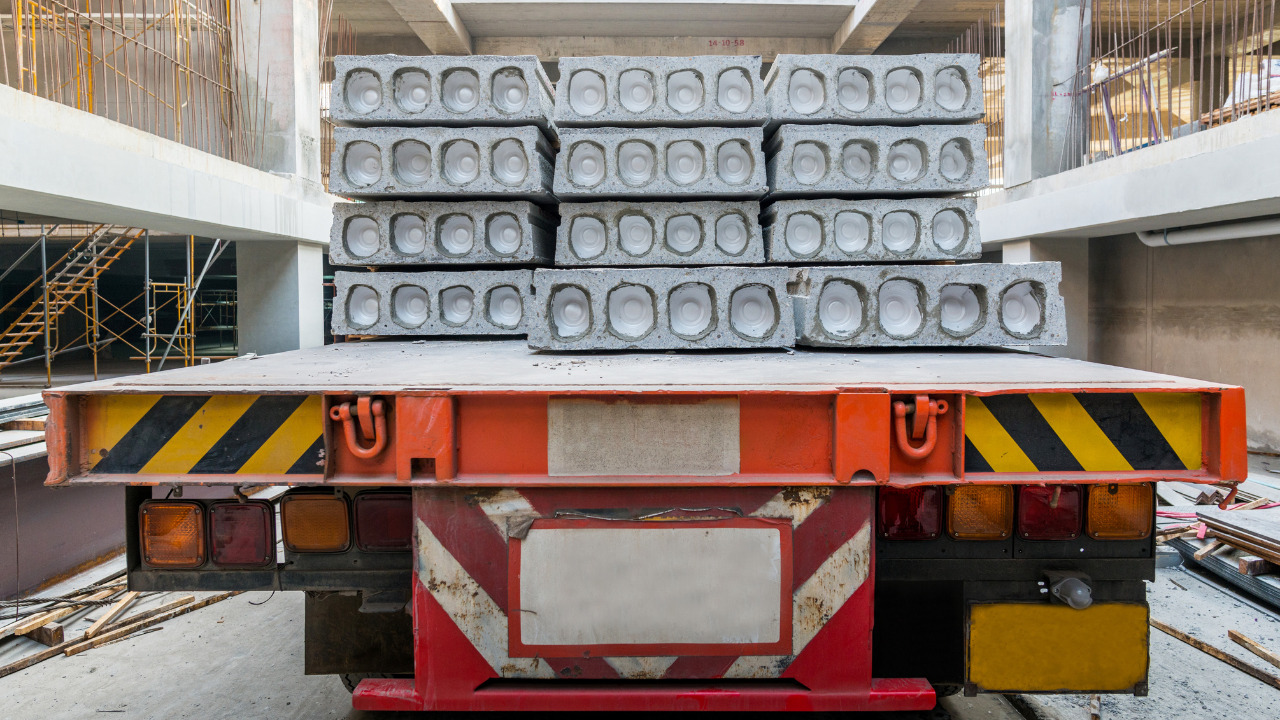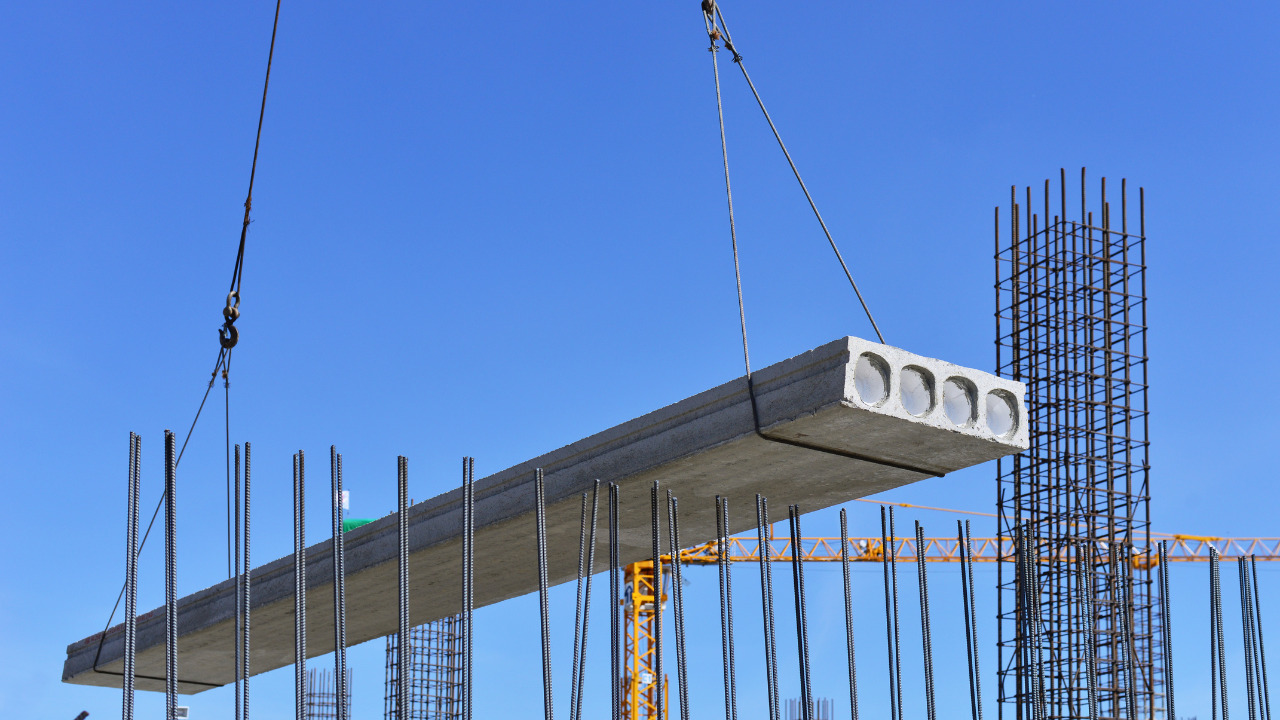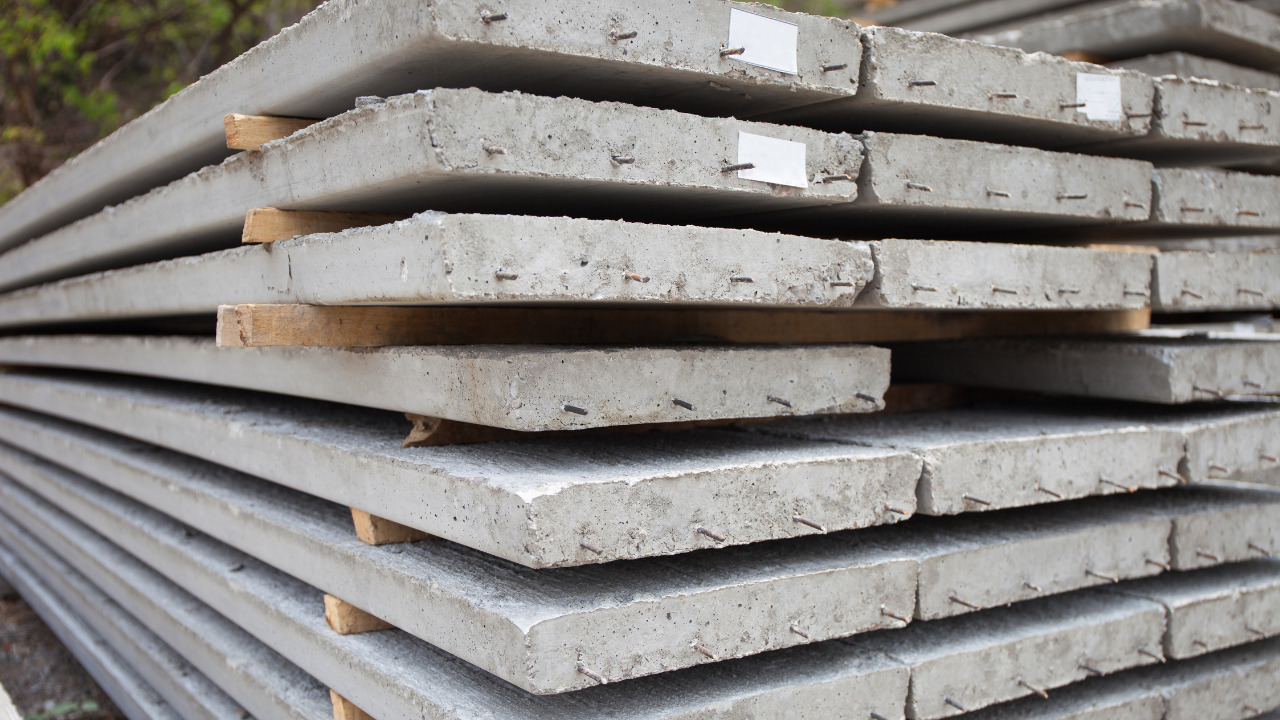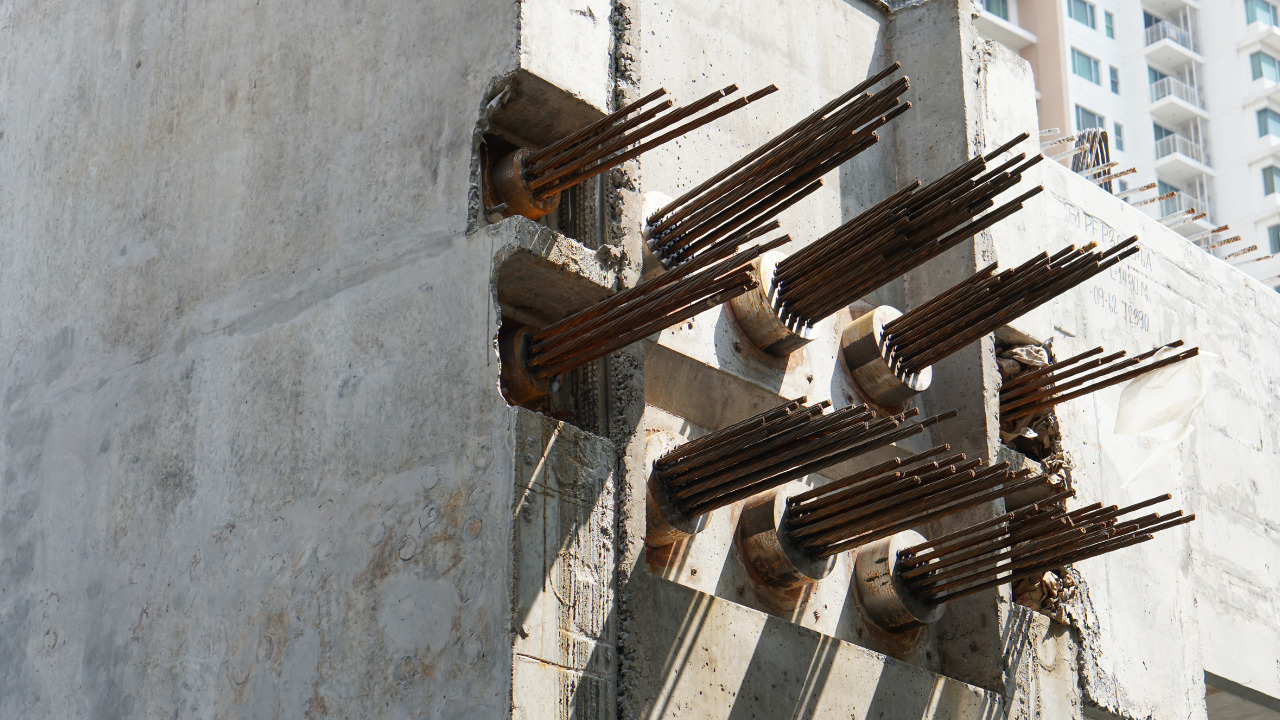Hollow core concrete slabs are a type of precast concrete members available in markets as precast slabs that have a hollow, tube-like interior or core. The cross-section of a panel or slab of hollow core concrete is rectangular in shape and the holes are present within the rectangular cross-section and extend to the entire panel length as hollow tubes.
The purpose of providing circular holes in the slab is to reduce the dead weight of concrete. A question arises that what is the point of reducing concrete’s weight by putting in too much effort to create a hollow core. The question is very pertinent; however, it must be looked at macroscopic or structural level and should not be conceptualized for an individual slab of concrete.
In other words, the purpose of providing circular holes in concrete becomes justified when viewed from a structure’s perspective where many such individual panels will be connected to each other. The impact of providing these holes in the concrete on the structure’s dead weight is great. In this regard, hollow core concrete proves very advantageous because it allows the member to bear more load without increasing the structure’s dead weight.
Apart from reducing a structures dead weight, these holes can also be utilized for installing electrical and mechanical systems for your building.
Table of Contents
Manufacturing of Hollow Core Concrete
The manufacturing of hollow core concrete does not take place on the construction site. Instead, these construction units are cast off-site in a precast factory and are then transported to where they are to be installed.
The manufacturing process of hollow core concrete is carried out in precast factories and it is detailed as follows;
- The first step is to set up molds in which the concrete is poured. Normally, these molds are made up of steel and are manufactured based on the size of concrete slab.
- Steel reinforcement is then placed within the forms to strengthen the member add of to the structural integrity.
- The concrete is then poured into the molds to cast the slab. The properties of the concrete mix are to be carefully monitored and usually we go for a high strength engineered concrete mix for hollow core concrete.
- The hollow cores are formed in the concrete by placing cylindrical members (made of plastic, cardboard, etc.) inside the concrete form as it is cast or poured. These hollow cylinders are removed once the concrete hardens.
- The concrete slabs are then cured for an appropriate time for them to gain strength.
- Once the curing operation is completed, the precast units are ready to be transported to where they are to be used.
What Type of Concrete Mix is Used in Hollow Core Concrete Slabs?
Precast concrete is used for manufacturing hollow core concrete slabs. As far as the properties of the concrete mix and its individual components are concerned, this can vary depending upon the project’s specific requirements.
Typical ingredients of concrete (cement, sand, coarse aggregates and water) can be mixed with certain supplementary materials such as fly ash, silica fumes, etc. that tend to augment the strength characteristic of concrete. Along with concrete, steel reinforcement is also added to improve the tensile performance of the precast slabs.
Hollow core concrete slabs can also be prestressed i.e., artificial compressive forces can be imparted to the slabs by tensioning the pre-stressing steel reinforcement to a certain level of stress. Doing so helps increase the member capacity, allowing it to perform excellently without cracking in the tensile zone and utilizing its full strength in compression.
The pre-stressing operation may also be carried out off-site in the factory where they are manufactured. In such cases, these will be pre-tensioned members in which the concrete is cast after the strands have been stretched to the required stress level.
Properties of Hollow Core Concrete
The following are some of the main properties of hollow core concrete that makes its use versatile and economically justified.
- The most striking property of hollow core concrete slabs is that they are light in weight and can easily be installed. When the dead weight of a structure gets reduced, the foundations required will also not be very large.
- Since they are precast units, they are manufactured off-site in a factory in bulk quantities depending upon the size and shape of the member.
- Hollow core concrete slab possesses good sound insulation properties. Therefore, in building where noise control is intended, this type of concrete slab can perfectly serve the purpose.
- This type of concrete slab is a durable and energy-efficient product.
- It is also a fire-resistant structural element and this makes it a good choice for high-rise buildings.
- It provides excellent sound insulation.
Strength of Hollow Core Concrete Slabs
The strength of an individual panel will usually be different from the strength of a slab made by assembling or connecting various panels. This is analogous to the fact that the compressive strength of a single brick is different (more) than the strength of a wall made by joining several bricks using mortar.
The strength of an individual slab panel usually depends on several factors such as the slab thickness, dimensions, concrete ingredients and their proportions, whether or not any admixture is used, the amount of reinforcement added, etc.
However, to state a general range, the strength of hollow core concrete slab can vary from 4000 psi to 8000 psi and depending upon the amount of loading the slab has to be bear, it is designed accordingly for the required or target strength.
Applications of Hollow Core Concrete
The use of hollow core concrete has made the construction work easy and expedient. These precast units can easily be installed and substantially reduce the construction time.
Hollow core concrete slabs are versatile and can be used in a wide variety of applications some of which are given as follows;
- Hollow core concrete slab panels can be used as a flooring material in buildings. The aesthetics and design of the floor can also be customized as per your project’s specifications.
- It can also be used as a roofing material for your building since it is durable and possess really good fire-resistance.
- These panels can also be used in load-bearing or non-load-bearing walls and are energy-efficient in their performance. Such walls also provide good sound insulation properties.
- Precast hollow core concrete slabs can also be used in parking lots and bridge decks and depending upon the anticipated loading, their design and specifications can be customized.
- For stadiums and play areas, the use of hollow core concrete is very common. It not only promises strength but also structural integrity and durability in the long run.
Advantages of Using Precast Hollow Core Concrete Slabs
Hollow core concrete slabs offer a plethora of advantages and we will highlight them for you. Here are a few key benefits of using hollow core concrete;
- The key advantage of creating holes in concrete slab panels is to reduce the dead weight of structure without hindering its ability to bear heavy loads. Therefore, with reduced structural dead weight comes material savings and better structural performance.
- Since the concrete panels are precast, this means that you only need to procure them from the manufacturers and do not need to cast then on site. This can substantially reduce the construction time as well as the labor costs. This is because the precast panels need to be simply put together and connected at the site, which you know is not a very tedious task in comparison to concrete casting and placement at site.
- Hollow core concrete slabs are highly durable and are capable of withstand heavy loads.
- They are also energy-efficient and you can end up with savings in energy bills that become alarming different weathers strike round the year.
- These concrete panels are versatile. This means that you can use them for multiple purposes such as in the construction of a wall, as a roofing material, as a flooring material, etc.
- The sound insulation properties of hollow core concrete make its use very beneficial in areas where there is noise intervention from outside. For instance, if a building is located in proximity of a busy highway, all you can expect is traffic noise and beeping all day long. In such cases, the buildings present in the vicinity ought to be insulated from the outside disturbances and we are sure, hollow core concrete slabs are one such great option to provide sound insulation and keep your interiors aloof from the raging noise levels.
Disadvantages of Using Hollow Core Concrete Slabs
Despite being versatile in their performance, hollow core concrete slabs also have some disadvantages and we recommend weighing both of them to get a clear picture of dos and don’ts for your project or building. Here are some disadvantages of using these precast panels;
- Adequate structural performance and integrity using hollow core concrete slabs can only be achieved if they are precisely assembled and connected at the joints. This becomes a challenging task and requires a great deal of precision. In addition, the holes in concrete as well as the joints can also become potential sources of moisture ingress in concrete that can lead to corrosion of embedded reinforcement and ultimately member failure. It is therefore, imperative to use some sort of sealant to prevent air and water to infiltrate and weaken the concrete.
- For large and open spaces, we generally do not recommend using hollow core concrete slabs because these will require additional intermediate supports to support the loading.
- You cannot achieve diversity in architectural styles when it comes to hollow core concrete. This means that you will end up with limited flexibility in design.
- The transportation of concrete slabs can also become a challenging task depending upon the slab size and the distance to the construction site where they are to be transported.
- The assembling and lifting of slabs on site will require not just specialized equipment, such as cranes, but also skilled labor.
Economics of Hollow Core Concrete
Hollow core concrete is an economical option for various structures or construction works and the following factors substantiate this claim.
- With hollow core concrete, you will require lesser material per square foot of surface area. This means savings in material costs.
- The labor costs will also dwindle since the slabs are precast and only need proper assembling and connection at the construction site. The labor cost also depends upon the timeline for which they work; if hollow core concrete is resorted to, since the timeline will reduce, so will the labor costs.
- The slab elements are cast off-site in a controlled environment. This means that the work efficiency will greatly be improved by using these precast members, and on-site casualties can be avoided to a large extent.
Given this, there are certain other factors that make hollow core concrete more expensive than traditional concrete. The net benefits, of course, will depend upon the project size and the target properties of concrete or slab member that is cast in a plant.
- Since these panels are cast in a factory, they usually incur more transportation costs. If large number of panels are to be transported, the cost will accordingly increase. In such cases, you will need to check the viability of using hollow core concrete because of the factory or plant being located far away from the construction site.
- Despite reduced labor costs, the installation cost of precast hollow core slabs practically levels off the difference. Heavy equipment and machinery as well skilled labor will be required to precisely carry out the assembling of individual units.
Frequently Asked Questions (FAQs)
What is the typical diameter of holes in a hollow core concrete slab?
The hole diameter depends upon the thickness of panel which in turn depends upon the amount of loading and plan dimensions. Therefore, depending upon the manufacturer and specific project details, tubular holes with varying diameters can be incorporated into the concrete slab.
Typical diameters are 2 to 4 inches or as a thumb rule, the hole diameter to be incorporated is usually two-third to three-fourth of the slab depth or thickness. However, this must only be used a crude guideline and the exact dimensions are to be decided based on your project’s specifications.
What can be the maximum possible length of a hollow core concrete member?
With hollow core concrete, you can go for long-span members up to a length of around 20 to 30 meters. However, for practical reasons, very large length ought to be avoided because the risk of deflection or cracking will also increase according. In addition, the transportation of such a heavy panel will be an added challenge.
It must be kept in mind that the length of a hollow core concrete slab panel depends upon the size (dimensions) of the member, the anticipated loading that it will be subjected to, the concrete mix properties, the reinforcement used, etc.


